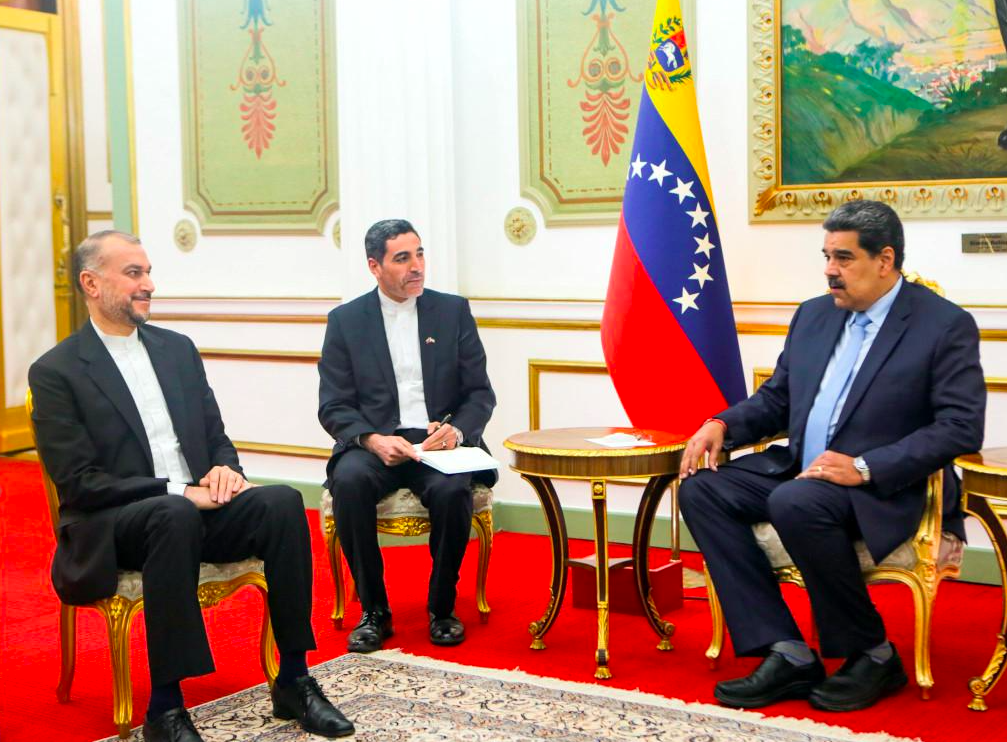Venezuela and Iran will rehabilitate the South American country’s largest refinery complex, opening a path to ending dependence on US technology.
News of the plan to upgrade the Paraguaná refinery complex followed a visit by Iranian Foreign Minister Hossein Amir-Abdollahian.
He met with Venezuelan President Nicolás Maduro, Vice President Delcy Rodriguez and Oil Minister Tareck El Aissami.

“I am confident that our relations will continue to strengthen in terms of technological, industrial, scientific, and cultural exchanges that will benefit both peoples,” Maduro wrote on his Twitter account after the meeting.
Venezuela and Iran have close political, economic, and diplomatic ties, strengthened by Washington’s increasing interference and imposition of sanctions on both countries.
A 100-day plan to rehabilitate the Paraguaná refinery complex, first reported by Reuters, calls for state-owned Petróleos de Venezuela (PDVSA) and National Iranian Oil Refining and Distribution Company (NIORDC) to work together to boost fuel production there.
Paraguaná, in western Falcón State, is the largest refining complex in the hemisphere.
It is divided into two main refineries, Amuay and Cardón, with capacities of 645,000 and 310,000 barrels of crude oil per day (bpd), respectively.
Following the crash in oil prices and a year-long blockade, Venezuela’s oil production has fallen dramatically since its previous peak of two million bpd in 2017.
The government has been unable to meet its production target of 1.5 million to two million bpd.
The US blockade of Venezuela’s oil industry has shut the country out of global energy and financial markets and prevented it from procuring diluents and critical parts to repair its Western-designed oil infrastructure.
Critical shortages of gasoline and diesel have occurred in recent years.
The US blockade further complicates PDVSA’s ability to perform maintenance and infrastructure work, as companies avoid doing business with Venezuela for fear of the stringent US sanctions, although not necessarily in violation of unilateral coercive measures.
NIORDC’s expertise is expected to help PDVSA break away from its dependence on US refining technology and better position the state-owned oil company to achieve its goals.
PDVSA has relied on intermediary traders and ship-to-ship transfers to circumvent the blockade to place its crude in the Asian market.
However, the hurdles to circumventing US sanctions resulted in large price discounts and payment problems.
According to media reports, this eventually led PDVSA to temporarily suspend oil sales contracts as the country’s production stagnated and exports declined.
The Maduro government has asked Iran to help revive the oil industry, particularly the refining sector.
Since 2020, Tehran has helped Venezuela meet its fuel needs by sending several gasoline cargoes, diluents, equipment, materials, and technicians to restart operations.
Last June, Maduro and his Iranian counterpart Ibrahim Raisi signed a 20-year agreement to expand cooperation, including repair work at the country’s refineries.
Amir-Abdollahian’s visit to Caracas was part of a short tour of the region, during which he also met with senior government officials in Cuba and Nicaragua.
During his visit with his Cuban counterpart, Amir-Abdollahian criticized the unilateral coercive measures the US has subjected Cuba to for decades.
“The US approach of imposing unilateral sanctions on other countries and bullying them will certainly fail,” Amir-Abdollahian said.
With information from amerika21

